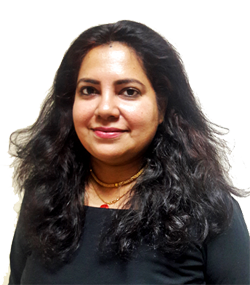

We are what our families are, I would like to say, but that is not the case most of the time. Even if we are part of the genetic pool there are various elements that influence us as we grow up.
We continue to grow but the basic orientation from our roots will linger around. Maybe they leave strains in our instincts. That is what makes you wonder about millions of children who are growing up in refugee camps and in places of conflict today. They are uprooted from their natural surroundings.
When it comes to children from dysfunctional families even they go through challenges but there are the other family members who would step in as well as the society and social workers.
But when a whole community is going through crisis the objective most often turns out to be first to survive and then later work on the sense
of security.
Then what happens to children who are separated from their parents at a young age?
When we think we as individuals need to evolve, it is only natural that we also must have the societies and nations evolve at an equal pace. But how can that be when some of the richest civilisations culturally and historically are lost without direction after battles and conflicts, where even the
basics of infrastructure have to be rebuilt again?
There was a time when consumer exhibitions in Oman were filled with cotton textiles and stitched clothes from Syria. In the recent years we have not seen the exhibitors and curiosity led me to look out how they were doing. It was interesting to find out
Aleppo is considered as the cotton industrial city of Syria.
Unfortunately many textile companies are closing down. While I missed the Syrian cotton and their designs, it had never occurred to me that cotton has been actually a strategic crop for the nation and at least 20 per cent of the population has been directly or indirectly involved with the cotton industry.
The fibre2fashion.com reports that currently the industry in Syria is facing challenge with the under-utilisation of the cotton plantation areas reasons being water and high cost of production.
India, China and the US are the leading cotton producers. When one tries to bear the summer heat the word that comes into mind is cotton.
A farmer once told me that nature provides fruits what is ideal for us during each season. He said, “Consume these gifts of nature and you will be in best of health.”
With Europe experiencing the heat wave this year only reminds us about the importance of cotton.
But it is not the first time civilisations have had to face a setback that also had an impact on their industries.
Since man began to settle down the societies also developed agriculture, farming and basic industries, whether it was pottery or industries. Fabric has been an important factor and it is amazing how civilisations were linked with each other.
The warring games to rule and the urge to expand trade also meant that nations lost their traditional knowledge along with the experts. In India the weaving included cotton and silk and even gold and silver threads indicating the level of intricacies involved in weaving. The machine — woven textiles also meant there was less demand for hand woven fabrics, which was what effected the weaving in China.
Oman also had cotton industry in the past. During one year of the Salalah Tourism Festival the participants exhibited how in the past cotton was grown and was used to make fishing nets.
Al Dakhiliyah and Al Batinah governorates were popular for their cotton as well. The Wilayat of Samayil was famous for its hand woven cotton textiles. Its cotton named, ‘Khadrangj’, meaning greenish in colour, was much in demand.
Oman Observer is now on the WhatsApp channel. Click here



